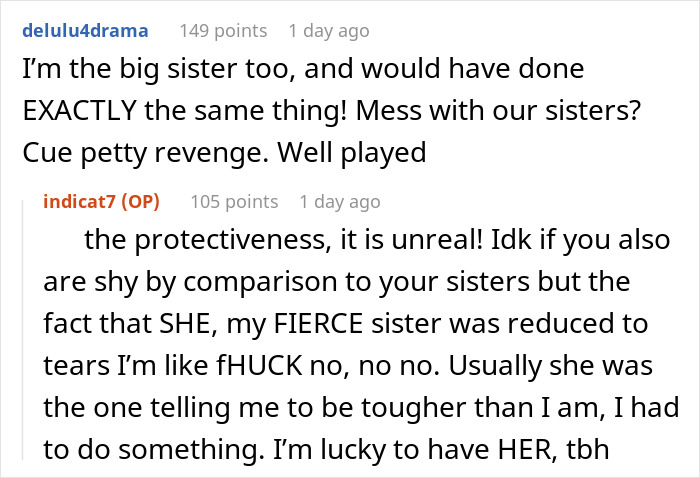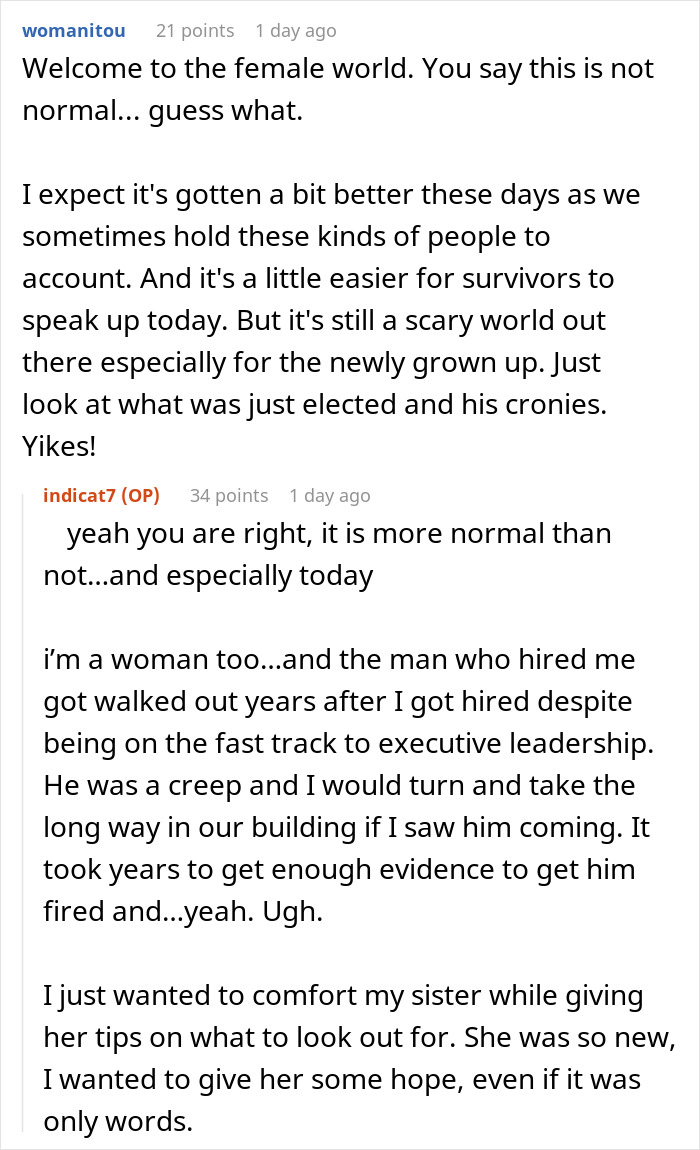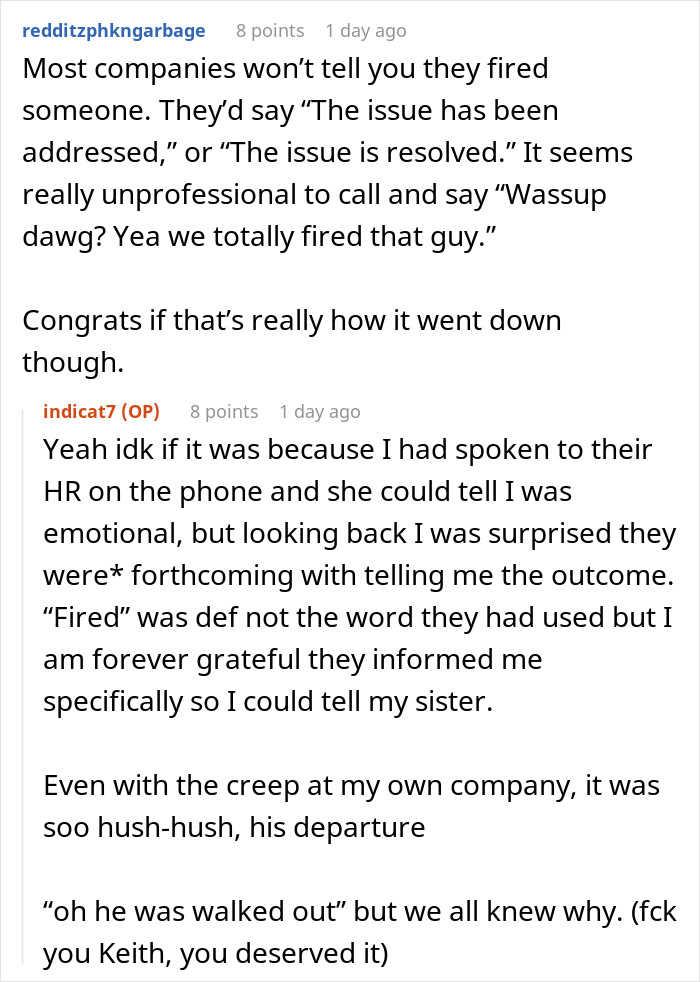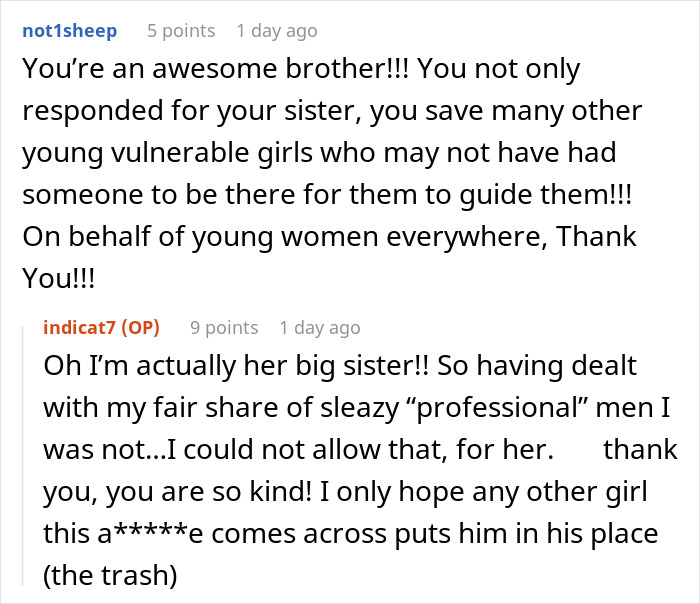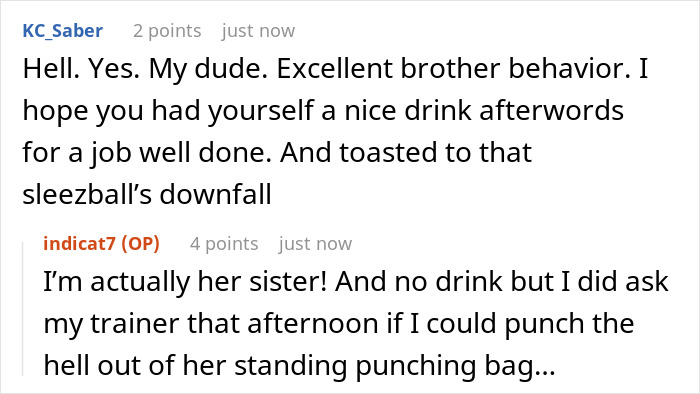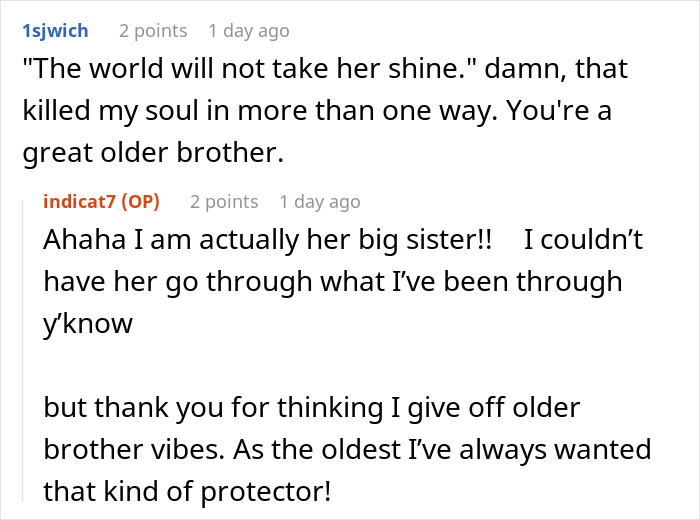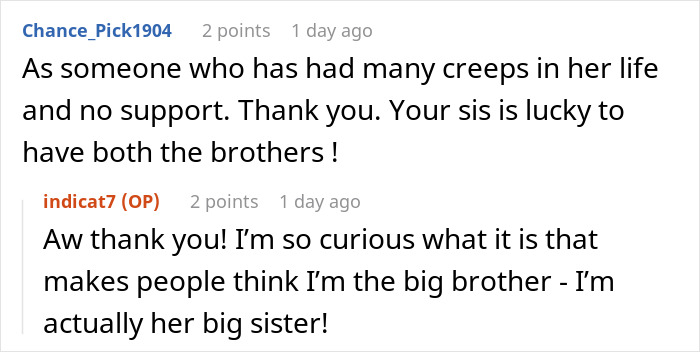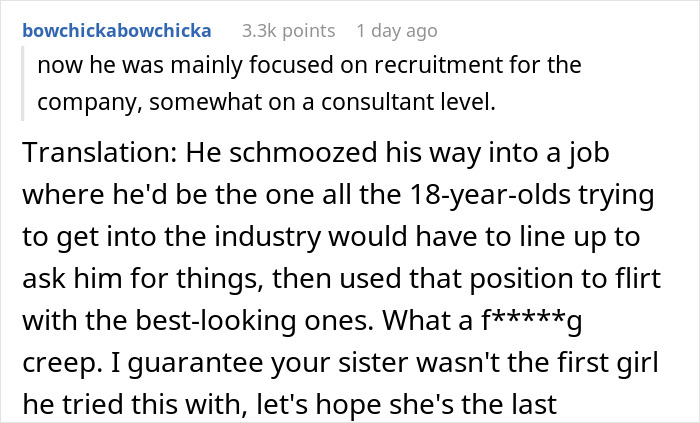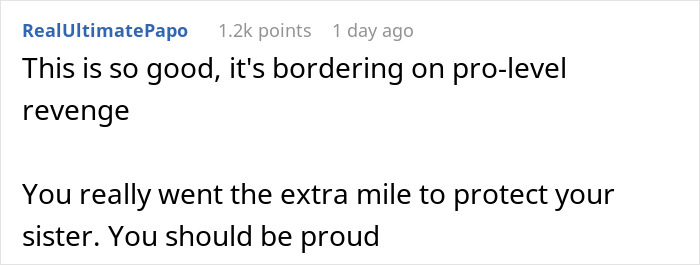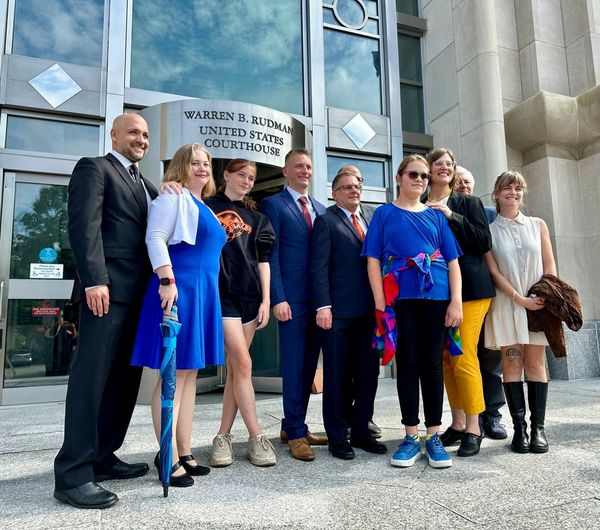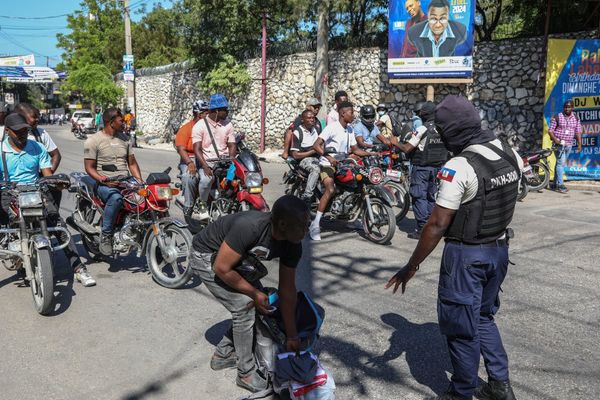It’s the ultimate sibling rule: you can mess with each other all you want, but the moment someone else dares to, you’ll stop at nothing to defend them.
That’s exactly what one woman on Reddit did when a creepy older man harassed her teenage sister. Instead of letting it slide, she took matters into her own hands and made sure he regretted every inappropriate action.
Scroll down to see how her swift revenge unfolded.
What should have been an exciting first career fair for a young woman was ruined by an older man who harassed her

Image credits: Dave Brenner, SEAS (not the actual photo)
However, as soon as her older sister heard about it, she wasted no time making sure he paid the price

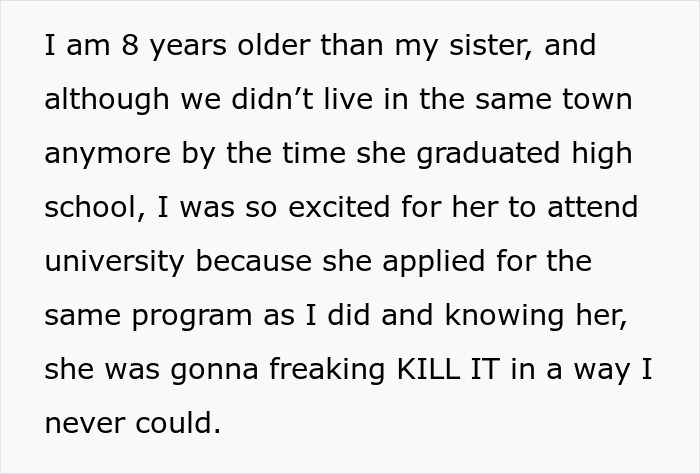
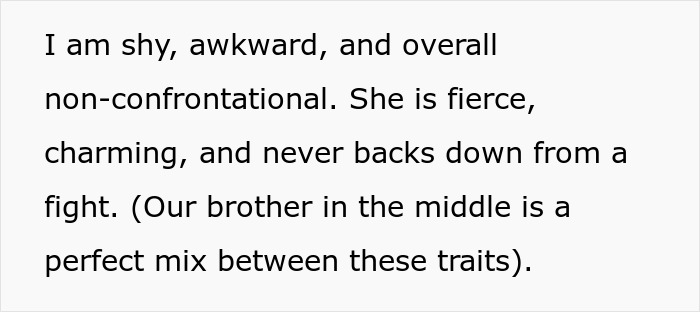
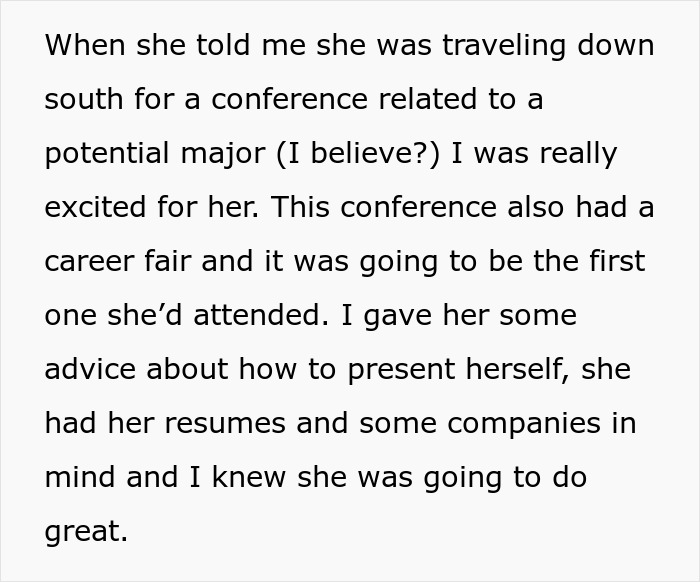
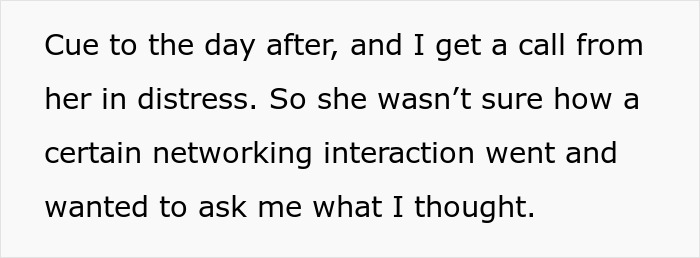


Image credits: Blake Cheek (not the actual photo)
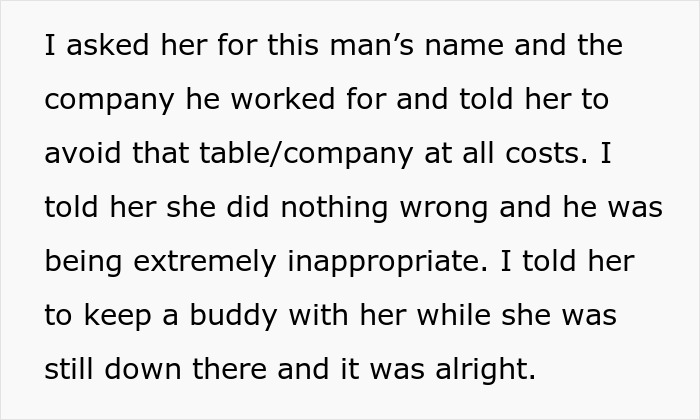
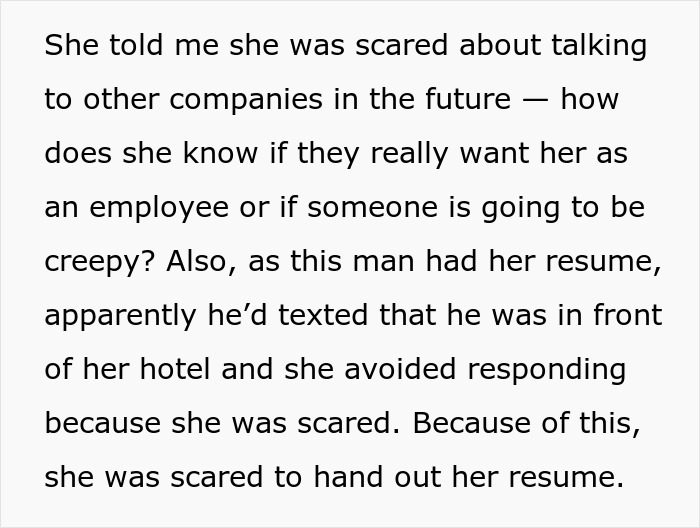




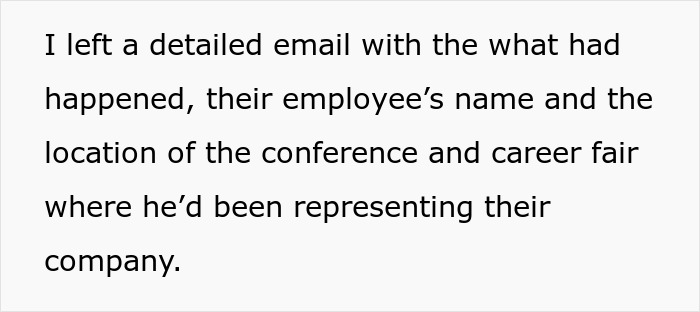
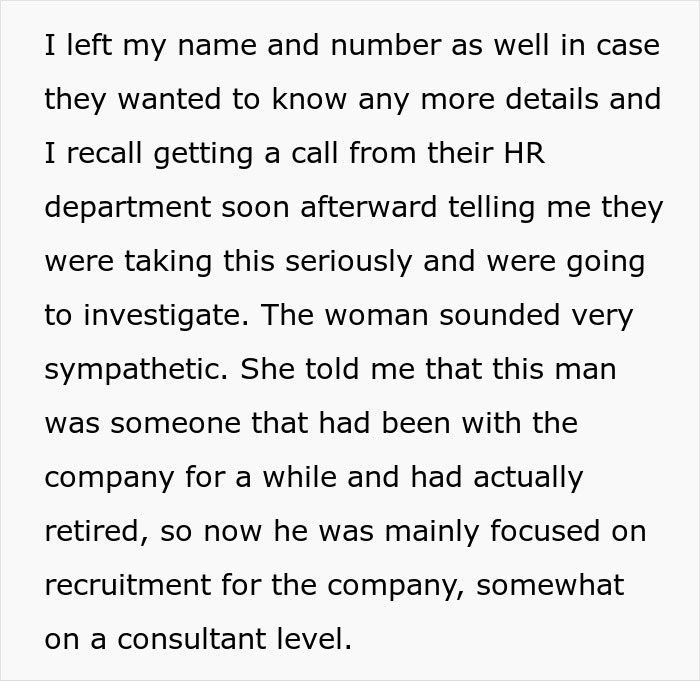

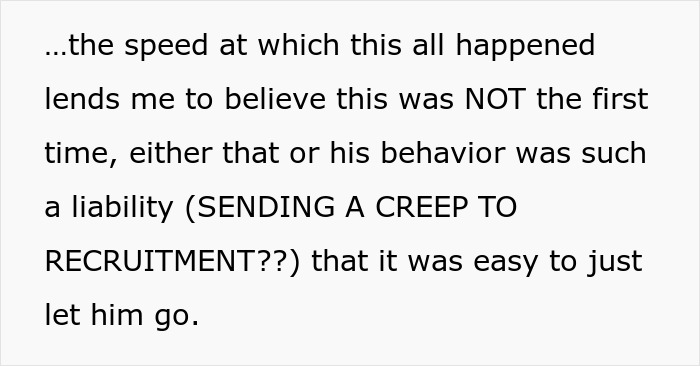


Image credits: Magnet.me (not the actual photo)
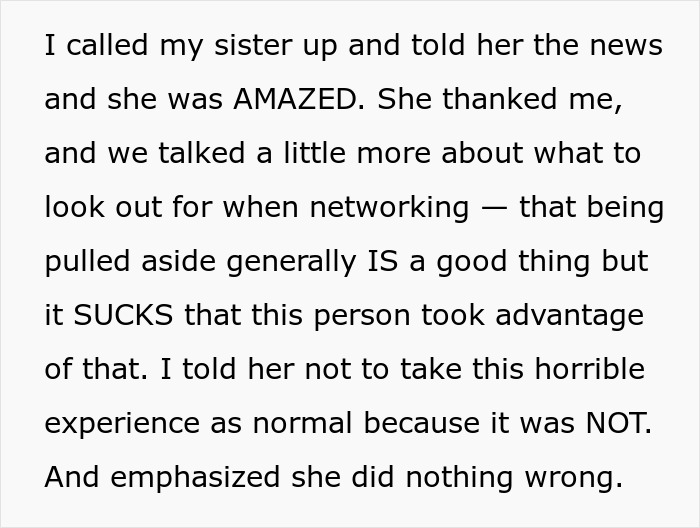


Image source: indicat7
Tips for supporting survivors of sexual harassment

Image credits: Rosie Sun (not the actual photo)
Stories like this one, where a quick and decisive reaction leads to justice, are incredibly uplifting. But sadly, sexual harassment is an issue that many women face far too often. A 2018 survey by Stop Street Harassment revealed that 81% of women have experienced some form of sexual harassment in their lifetime.
More recent studies show the problem might be even worse. Research by UN Women UK in 2022 found that 97% of women aged 18-24 have been sexually harassed, with 96% of those women choosing not to report it—often because they believe nothing will change.
Many women also avoid sharing their experiences because they don’t want to relive the trauma or they fear being humiliated. That’s why, if someone chooses to open up about their experience, it’s crucial to respond with sensitivity and support. The right words can make a huge difference in their healing process.
Here are some supportive phrases recommended by experts at RAINN (Rape, Abuse & Incest National Network), the largest anti-sexual assault organization in the U.S.:
“I believe you. / It took a lot of courage to tell me about this.”
Survivors may worry they won’t be believed or feel ashamed to share their story. Avoid asking “why” questions or playing detective—that’s a job for professionals. Your role is to listen and validate their experience. Remember, calmness doesn’t mean the event wasn’t traumatic; everyone processes these events differently.
“It’s not your fault. / You didn’t do anything to deserve this.”
Survivors often blame themselves, especially if the perpetrator was someone they knew. It’s important to remind them, even more than once, that they are not to blame.
“You are not alone. / I care about you and am here to listen or help in any way I can.”
Let them know they have your support. Ask if they feel safe confiding in anyone else and remind them that professional organizations and service providers are available to help them through the process.
“I’m sorry this happened. / This shouldn’t have happened to you.”
Acknowledging their pain can go a long way in showing empathy. Phrases like “This must be really tough for you,” or, “I’m so glad you’re sharing this with me,” convey understanding and compassion.
If you or someone you know has experienced sexual harassment or assault, there are resources available to help. In the U.S., you can reach out to the National Sexual Assault Hotline at 800.656.HOPE (4673), or visit online.rainn.org. If you’re outside the U.S., look for local support services in your area. No one should face this alone.
Commenters praised the author for protecting her sister


